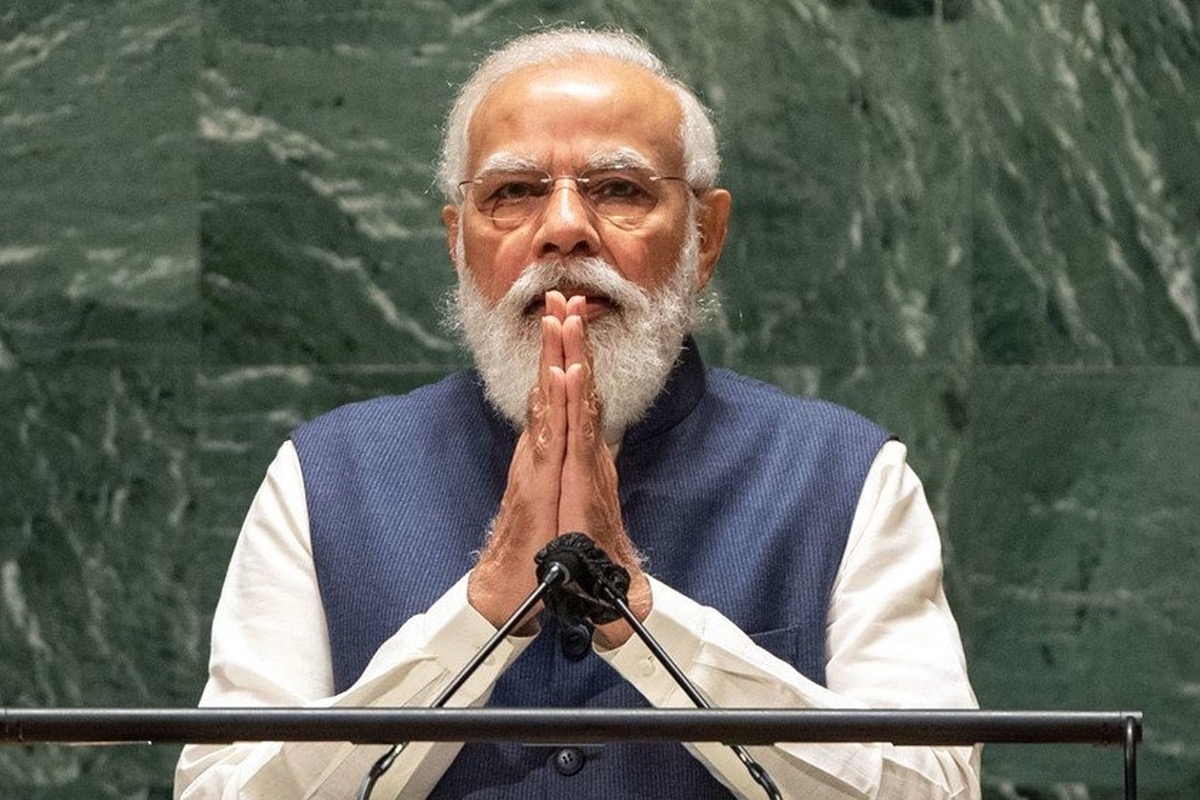

Menstruation is taboo issue across all developing countries. The ease and sincerity with which Prime Minister Narendra Modi speaks about it not only normalizes conversations around it, but also sets a robust template for other leaders from the developing world to follow.

It is not everyday that we hear the executive head of a developing country uttering the words sanitary pads in the Parliament amid applause. In the din of political tug of war, this extremely significant bit from the PM’s speech, replying to the motion of thanks to the President’s address in parliament, got lost.
“With great sensitivity, we have focused to remove every small hurdle that impede the empowerment of women. Often I am made fun of that what kind of a Prime Minister talks about toilets and sanitary pad. These toilets have made to honour the safety and dignity of our women. In the absence of sanitary pads, our sisters and daughters from poor families had to suffer much embarrassment and become victim of several diseases,” he said in a moving statement in the Parliament.
Prime Minister @narendramodi has the gift of the gab. So he had his audience splitting their sides today. But then in the same speech, the elegance & sensitivity with which he spoke about toilets & sanitary pads for common women in India, is extraordinary!pic.twitter.com/WvyROqSKbL
— Aarti Tikoo (@AartiTikoo) February 8, 2023
Menstruation is taboo issue across all developing countries. Recently, when a Chinese woman posted her frustration about unavailability of sanitary pads on train on social networking site Weibo, China Railway responded by saying it was “inappropriate” and “dirty” to sell sanitary pads on trains.
The ease and sincerity with which Prime Minister Narendra Modi addresses taboo issues like toilets, or making sanitary pads easily accessible to women not only normalizes conversations around them, but also sets a robust template for other leaders from the developing world to follow.
The Ministry of Health and Family Welfare has introduced a scheme for promotion of menstrual hygiene among adolescent girls in the age group of 10-19 year in rural areas. From 2014 onwards, funds are now being provided to States/UTs under National Health Mission for decentralized procurement of sanitary napkins packs for provision to rural adolescent girls at a subsidized rate of Rs 6 for a pack of 6 napkins. PM Modi’s pet project Swachh Bharat Abhiyan, the objective of which is to eliminate open defecation is also guided by concerns around female safety and hygiene to a great deal.
It cannot be denied that India is a country where male members of the family still hesitate to openly discuss menstruation and women regularly suffer the ignominy of being sheepishly handed down sanitary pads in shops. Male members of Indian society are awfully ill equipped to understand the health implications of not investing in female hygiene. PM Modi’s uninhibited prioritising of female hygiene and health not only as a matter of public policy but also as a pillar of social progressivism helps improve the choices that Indians make at the level of individual and family. It also rewires the way such issues are perceived.
PM Modi in a sense remains an underrated feminist. A man who doesn’t hesitate to take a difficult and tricky issue in a complex society like India and turn into a matter of responsibility and public service. What really makes his messaging effective is that he doesn’t talk down to Indians like an activist. He leads by example and nudges Indians in an avuncular way, reforming India one step at a time.